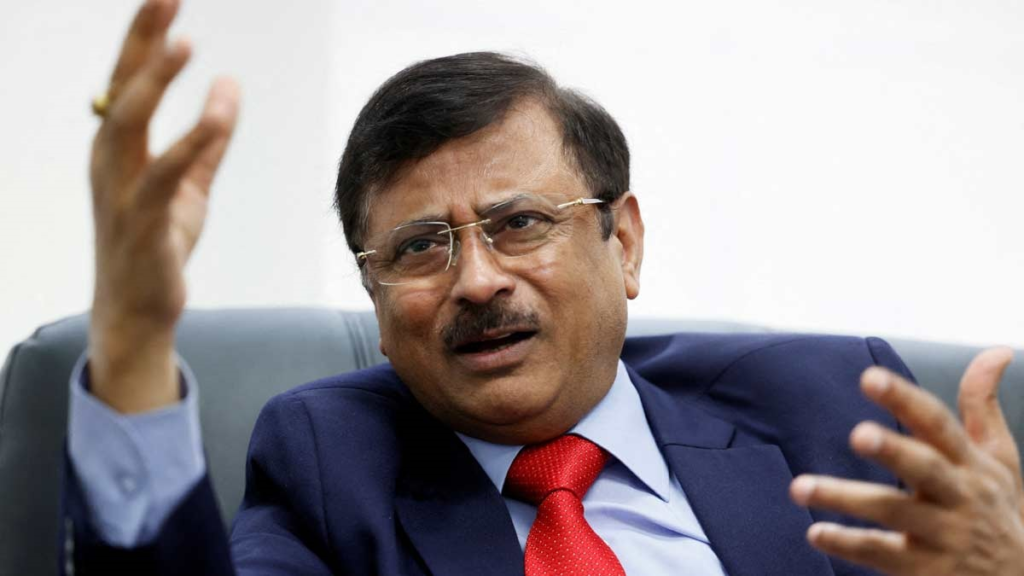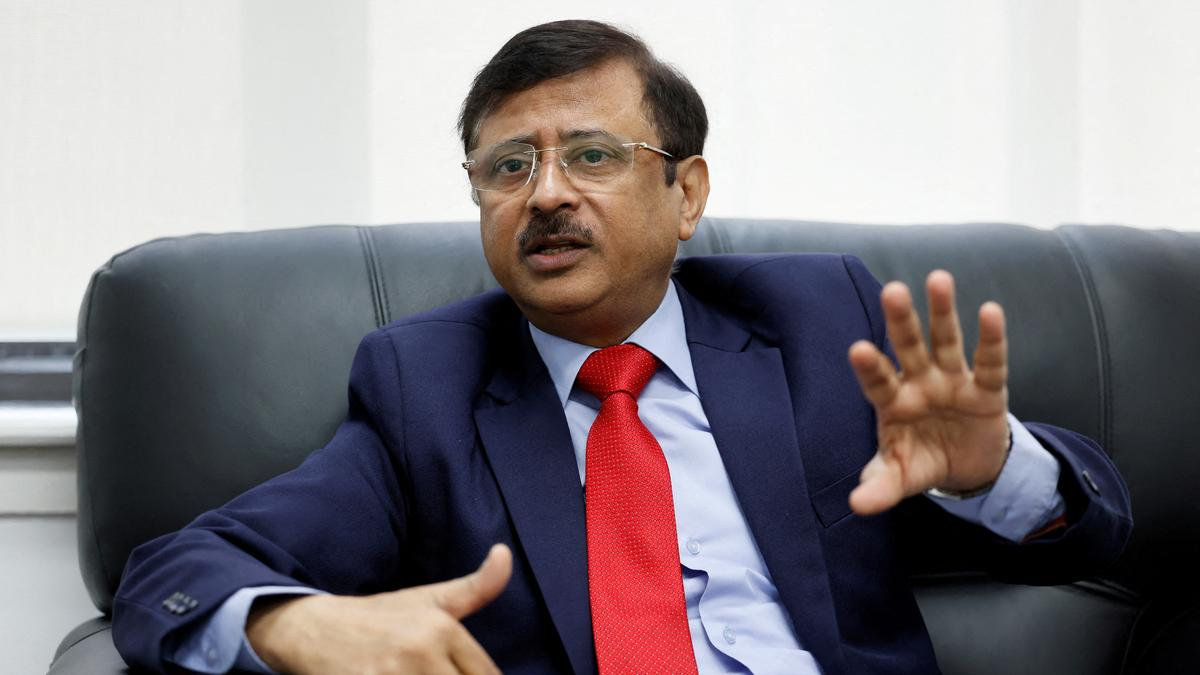In a deeply critical interview, Sanjay Kumar Verma, the outgoing Indian High Commissioner to Canada, has spoken out about the deteriorating state of India-Canada relations. According to Verma, Canadian Prime Minister Justin Trudeau’s actions have been the primary catalyst for the downward spiral in bilateral ties between the two nations.
His remarks come amid escalating tensions following allegations by Trudeau that Indian agents were involved in the killing of Khalistani terrorist Hardeep Singh Nijjar. Verma’s strong words highlight both the lack of evidence and the mishandling of diplomatic protocols that have contributed to the decline in the relationship between the two countries.
Trudeau’s Allegations Without Evidence
The current deterioration of India-Canada relations can be traced back to an address made by Justin Trudeau in the Canadian Parliament in September last year. In this address, Trudeau alleged that Indian government agents were involved in the assassination of Hardeep Singh Nijjar, a Canadian citizen and a prominent figure in the pro-Khalistan movement.
This accusation sent shockwaves through the diplomatic corridors of both nations, prompting an immediate response from India.
Read : Hardeep Nijjar was a Foreign Terrorist, Not Canadian: Canada Opposition Leader Bernier
However, what followed was a clear deviation from established diplomatic norms. As Sanjay Verma pointed out, Canada failed to provide any concrete evidence to support Trudeau’s claims. This lack of evidence sharing has been a central theme in the dispute between the two nations.
Verma criticized Trudeau for making public allegations based solely on intelligence without hard evidence. He stated, “Canada didn’t follow the practice which should have been there. Evidence should have been shared first, but someone (Trudeau) decided to stand in Parliament and talk about a thing for which he himself has said there was no hard evidence.”
Read : Canada Lists Iran’s Islamic Revolutionary Guard Corps (IRGC) as a Terrorist Organisation
Verma’s frustration is understandable. In international relations, especially between democratic nations, accusations of this magnitude require thorough investigation and corroboration before being made public. Yet, in this case, Trudeau’s decision to bring the matter before the Canadian Parliament without conclusive evidence caused immediate harm to diplomatic ties.
As Verma noted, “The day on which he did that, since then, he has made sure that the bilateral relations with India only go downwards, spiraling down.”
The Diplomatic Fallout
The aftermath of Trudeau’s allegations has been severe, with both nations taking reciprocal actions that have further strained their relationship. India’s decision to recall Sanjay Verma and other diplomats from Canada marked a significant diplomatic shift. This recall came after Ottawa named Verma a ‘person of interest’ in its investigation into Nijjar’s killing, adding yet another layer of tension to the already deteriorating situation.
Despite these actions, the Canadian government has not provided India with the evidence necessary to substantiate its claims. Verma expressed frustration with Canada’s approach, stating, “The problem is that when he accused, he himself admitted there was no hard evidence.

There was intelligence. On the basis of intelligence, if you want to destroy a relationship, be my guest.” He went on to explain that much of the so-called evidence cited by Canada is hearsay, gathered from individuals who are often aligned with anti-India or pro-Khalistan elements.
For India, a country that prides itself on being a rule-of-law nation, the lack of substantive evidence has been particularly troubling. Verma’s comments reflect a broader issue with Western nations, as he pointed out the hypocrisy of developed countries asking developing nations to comply with international norms while failing to do so themselves.
“We are a rule of law country, as Canada prides itself on being a rule of law country. So, won’t you give me evidence which is suitable for my own legal process?” Verma asked, highlighting the fundamental breach of diplomatic protocol by the Canadian government.
Monitoring Pro-Khalistan Elements in Canada
One of the key aspects of the India-Canada dispute has been the issue of pro-Khalistan and anti-India elements operating within Canada. Sanjay Verma and his colleagues at the Indian High Commission were closely monitoring these groups, but according to Verma, their methods were far from covert.
Instead, they relied on publicly available information to track the activities of these groups, including reading statements, social media posts, and newspaper reports.
Verma dismissed accusations that India was engaging in covert surveillance of pro-Khalistan groups, pointing out the absurdity of expecting a diplomat not to be aware of what their enemies are doing. “If the Canadian politicians are so novice that they want me not to know what my enemies are doing here, then I’m sorry, they don’t know what international relations is all about,” he stated.
This aspect of the dispute underscores the broader issue of the Khalistan movement and its impact on India-Canada relations. The Khalistan movement, which advocates for a separate Sikh homeland, has long been a point of contention between the two nations.
While India has sought to curb the influence of pro-Khalistan groups abroad, particularly in countries like Canada where the movement has a significant following, Canada has been accused of turning a blind eye to the activities of these groups.
Verma’s comments suggest that Canada’s failure to address the issue of Khalistan separatism within its borders has contributed to the deterioration of bilateral ties. He also pointed to the double standards of certain Western countries, noting that while Canada condemns extrajudicial killings, some G7 nations have engaged in such activities themselves.
“I know the countries which have done it (extrajudicial killings on foreign territory). And some of them are G7 countries, by the way. So let’s not talk about it. There should not be double standards,” he remarked.

Sanjay Verma’s parting words as India’s High Commissioner to Canada offer a scathing critique of Justin Trudeau’s handling of the India-Canada relationship. His accusations that Trudeau has deliberately undermined bilateral ties for political gain resonate with India’s broader concerns about the lack of evidence and the mishandling of sensitive diplomatic issues.
Trudeau’s decision to publicly accuse Indian agents of involvement in Hardeep Singh Nijjar’s killing without providing substantive proof has led to a significant diplomatic rift between the two nations.
The diplomatic fallout has been swift and damaging, with both countries taking actions that further strain their already fragile relationship. Verma’s comments also bring to light the broader issue of pro-Khalistan elements operating in Canada and the double standards that some Western nations apply when dealing with such issues.
As Verma prepares to leave his post, his final remarks serve as a reminder of the importance of evidence-based diplomacy and the consequences of political posturing. India, as the largest democracy in the world, has emphasized its commitment to the rule of law and the need for concrete evidence in any allegations of wrongdoing.
For Canada and Justin Trudeau, the road to repairing relations with India will likely require a more thoughtful and measured approach, one that prioritizes diplomacy over political expediency.

